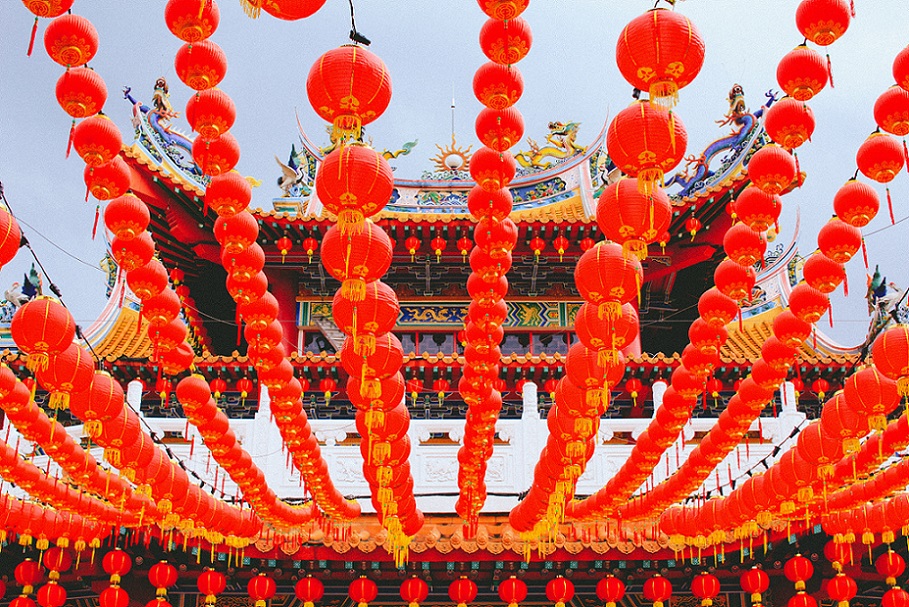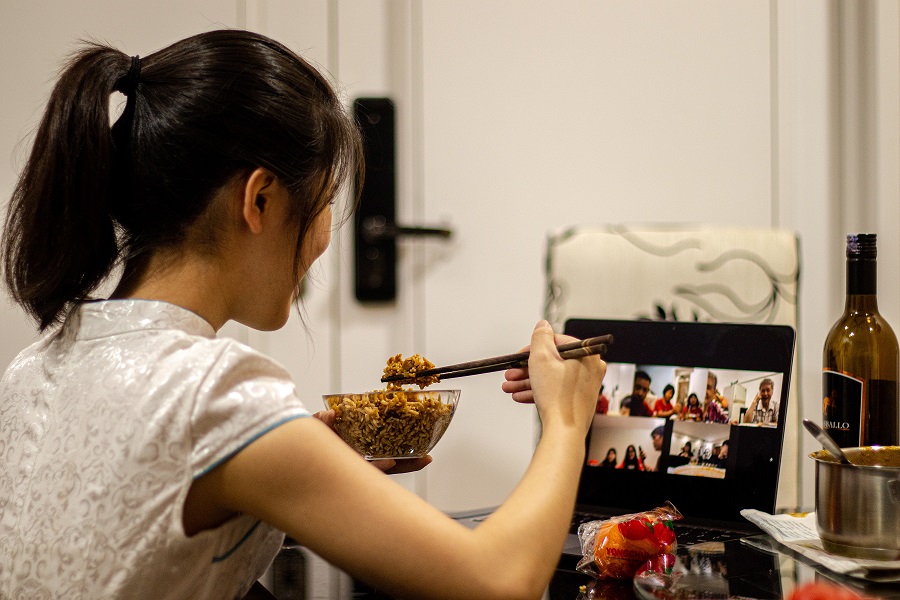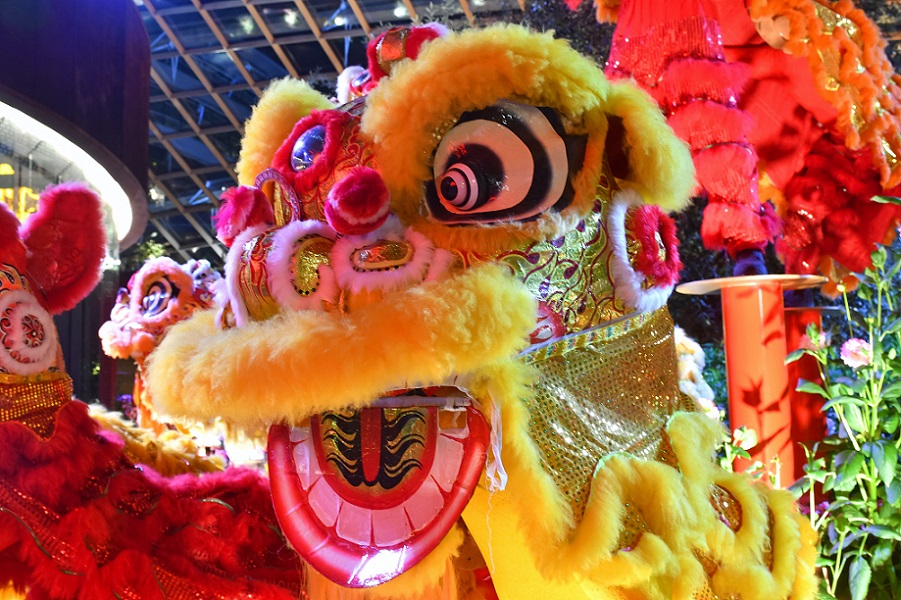The Lunar New Year is one of the biggest and most celebrated holidays for all Chinese families to reunite and catch up with each other. The observance, which is steeped in culture and traditions, holds deep value to many because it signifies a celebration to welcome good luck and fortune to families who celebrate them.
Every year, families will get together to welcome the New Year which usually begins with a reunion dinner – one of the most important elements of the festival. Therefore, it is extremely important for all family members to be present on the day.

Subscribe to our Telegram channel to get a daily dose of business and lifestyle news from NHA – News Hub Asia!
Celebrations after the outbreak
The way the Lunar New Year is celebrated changed since the COVID-19 virus struck as it caused a massive outbreak across the globe that forced many countries into varying levels of lockdown over the past two years. The epidemic not only caused financial difficulties for many families but also kept them away from each other. Therefore, many traditions of the new year festival have been put off for most families. Fortunately, the virtual option is available to most people around the world today.

China
With the festival originating from ancestors from China, the country takes the Lunar New Year very seriously. It is, in fact, the biggest holiday of the year in China.
Last year, China spent the New Year in a lonely daze. Many families were separated due to the increasing cases; many too welcomed the New Year’s alone.
According to The New York Times, the authorities in China announced rules to discourage over 300 million migrant labourers from travelling back home to celebrate the new year with their families to prevent a spike in Covid cases. This naturally stirred dissatisfaction amongst the people especially since travel was also restricted the year before at the onset of the outbreak.
“Is it wrong for a migrant worker who toils day and night, who lives far away from home, to return to his hometown and reunite with his family during his only few days of annual holiday?” commented a netizen in an angry post on the Chinese social media, Weibo.
Singapore and Malaysia
Other countries like Malaysia and Singapore, faced the same crisis. Malaysians working in neighbouring country, Singapore, initially could not cross borders to return home to their families. However, cross-border movements are now possible albeit with many strict travel standard operating procedures (SOPs) and precautionary measures enforced by Malaysia and Singapore to reduce the risk of importation of COVID-19 into both countries.
Last year, Singaporeans spent a quiet New Year with no traditional lion dances or New Year bazaars around the city. The streets of Chinatown were decorated with banners to welcome the new year; however, the streets were almost silent. The Singapore government had implemented strict rules to prevent crowds at locations that typically hold celebrations.
“Chinatown does not feel like it is in the Chinese New Year period, it feels more like a typical weekday. I feel like the business is slowing down as well,” said a regular that frequents Chinatown during the New Year season.
In Malaysia, SOPs for all festivities were also put in place that restricted interstate travel, visiting, and gatherings since the first movement control order (MCO) was put in place in March 2020. Last year was the first time Malaysians had to celebrate the Lunar New Year minus the usual traditions due to MCO SOPs that also caused reunion dinners to be cancelled. This caused a wave of sarcastic comments on social media.
As reported on Bloomberg, a netizen wrote, “We cannot visit our parents even if they stay within a 10-kilometre radius, but we probably can meet at the nearest night market, and it wouldn’t be breaching the SOP.” As such, many took to virtual gatherings to celebrate and participate in family reunions and spiked little meetings in shopping malls.
Impact on Customs and Traditions
With the pandemic, many speak of its impact on socio-economy, but what about the way it has and could further affect our customs and traditions?
According to elderlies, the day before the Lunar New Year is meant for spring cleaning as sweeping on New Year’s Day itself is unlucky since it signifies the sweeping of wealth out the family doors. On the eve, children will help decorate houses with New Year stickers, often representing the zodiac of the year with an auspicious touch.
The impact of the pandemic in this regard is the knowledge of children about their roots. Children growing up during the pandemic may not be able to learn the ways of their culture or how to prepare for the festival because they have not been able to help with the preparations during the pandemic.
The special reunion dinner held annually was forced to be cancelled due to implemented restrictions such as the limited pax per house rule, preventing the visits of distant relatives from the celebration. Those away from home will have to spend the New Year’s by themselves and participate in a virtual gathering with their family members. In fact, after the first hit of the COVID-19 wave, many youngsters have opted to not return home for New Year’s celebrations in the second year.
This results in older family members having lesser time spent with their loved ones. The importance of this tradition and the concept of family piety might be slowly forgotten by the younger generations due to the pandemic.
Besides that, younger children have not been able to experience proper Lunar New Year celebrations with their grandparents and relatives. As such, they might grow up forgetting their roots and traditions.
A common practice during the Lunar New Year is for the elders to give out red packets to family members who are not married or still young. That is, after receiving auspicious sayings from them. Due to SOPs, the younger generation receives their red packets through e-wallets and online banking, making the new year feel less exciting without the interaction of handing over red packets and tokens of blessing in a physical setting. There is also the possibility of children not learning or understanding the traditional auspicious sayings that have been passed down for generations in the Chinese community.
The loud traditional lion dance is one of the traditions in welcoming the New Year as legends have it, the lion dances were meant to chase away the mythical beast called ‘Nian’ that feeds on the human flesh. The lion dance along with the loud music and the colour red that accompanies it symbolically wards of evil and bad fortune. The restrictions enforced during the pandemic also caused a halt for lion dances – which is a large feature when ushering in the New Year.

Enter the Year of the Tiger
Fast forward to 2022, the Year of the Tiger is welcomed by street vendors and shops selling New Year goodies and decorations as vibrant red lights blink across the cities. Businesses are back in operation in the new norm, and families are allowed to reunite and have meals together again so long as SOPs and safety rules are strictly followed – at least, this is so for us in Malaysia and all seems well, for now.
In this Year of the Tiger, spend as much time as you can with your families as it is an essential way of handing down knowledge about our roots, customs, and traditions. Besides, you never know when you will get to spend time with them again.
Happy New Year!
*Written by Isabelle Chua for News Hub Asia.
